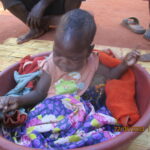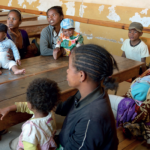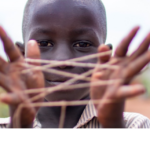A programme of early detection and intervention for children with early developmental disabilities and their families was feasible and acceptable in a rural community-based Ugandan setting. Health care worker training positively impacted knowledge, confidence, attitudes, and referral rates. Families enrolled to the early intervention programme reported significant improvements in quality of life. Important programmatic barriers identified included geographical spread, poverty, gender inequality, and stigma.
Recent News
 February 2025 NewsletterFebruary 25, 2025
February 2025 NewsletterFebruary 25, 2025 What families in Northern Mozambique learned in the Ubuntu ProgrammeOctober 31, 2024
What families in Northern Mozambique learned in the Ubuntu ProgrammeOctober 31, 2024 The importance of caregivers in child wellbeing and mental health policy and practiceJune 6, 2024
The importance of caregivers in child wellbeing and mental health policy and practiceJune 6, 2024 Inclusive and integrated play for children with disabilitiesApril 12, 2024
Inclusive and integrated play for children with disabilitiesApril 12, 2024 Advancing evidence to promote health and wellbeing for children with disabilitiesFebruary 2, 2024
Advancing evidence to promote health and wellbeing for children with disabilitiesFebruary 2, 2024
Archives
Categories
This message is only visible to admins.
Problem displaying Facebook posts. Backup cache in use.
Click to show error
Problem displaying Facebook posts. Backup cache in use.
Click to show error
Error: Error validating access token: The session has been invalidated because the user changed their password or Facebook has changed the session for security reasons. Type: OAuthException